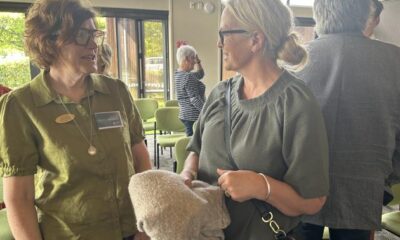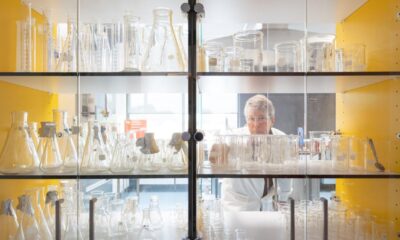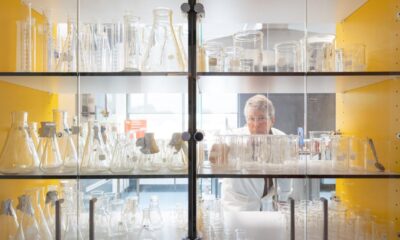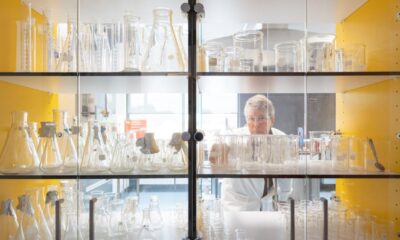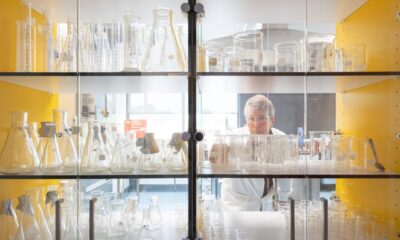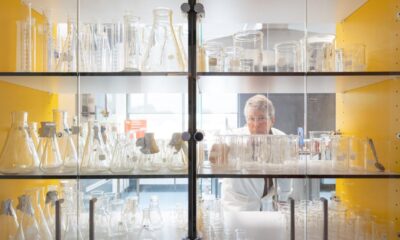Science
Master’s Student Maps Genetic Diversity of Heritage Apple Varieties
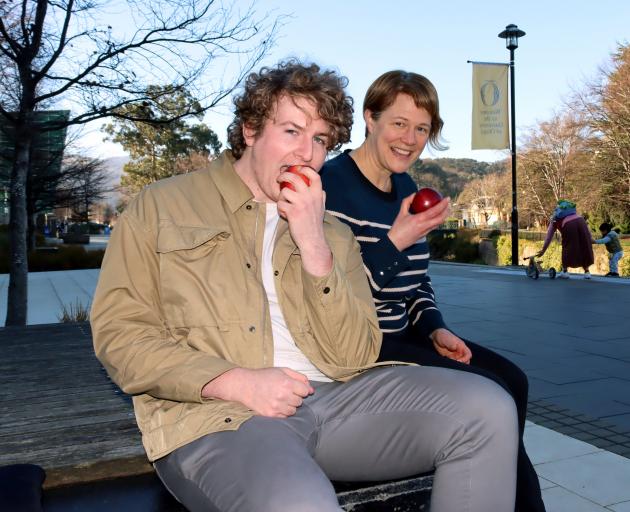
A master’s student is uncovering the genetic diversity of over 300 apple varieties from the Jim Dunckley Heritage Orchard in New Zealand. Aaron Hewson, who is pursuing a degree in plant biotechnology, aims to support the preservation and propagation of these heritage cultivars through genetic identification. This orchard, established by the Coastal Otago Branch of the New Zealand Tree Crops Association 25 years ago, is renowned for its diverse collection of apple cultivars, which includes uniquely named varieties such as Peasgood Nonsuch, Nonnetit Bastard, and Warner’s King.
Hewson’s research focuses on ensuring the accurate identification of these apple varieties, many of which were collected by Jim Dunckley in the 1990s from various locations across Otago and Southland. While much of the collection originates from Clyde, where an old Plant & Food Research orchard existed, Hewson notes that the naming of some trees reflects local landmarks rather than their genetic makeup. He explained, “There is one case where we had a Plant & Food apple called Granny Smith, the classic one you get in supermarkets, and another one called Lord Lambourne. These two cultivars should be really different, but the samples were saying they were genetically the same. So one of those names has to be wrong.”
To investigate these discrepancies, Hewson, with assistance from university students and staff, collected samples that were then freeze-dried and sent to a laboratory in France for genetic analysis. The process was facilitated by Plant & Food Research, which is now part of the Bioeconomy Science Institute. “They allowed us to send our samples with their bulk group of samples for genotyping by SNP chip,” Hewson stated. The SNP chip technology identifies around 50,000 known DNA markers in apple leaves, providing a rapid genetic fingerprint to determine whether two trees are identical or distinct varieties.
The preservation of these heritage apple varieties is crucial, especially given the narrowing genetic base of commercial apples. Hewson noted that while there are approximately 10,000 different apple varieties globally, all modern commercial varieties are derived from just six apples. This limited genetic pool poses risks for disease resistance and other traits.
The research is not just an academic exercise; it has significant implications for the future of apple breeding in New Zealand. Associate Professor Lynnette Brownfield, one of Hewson’s co-supervisors at the University of Otago, highlighted the importance of identifying the genetic makeup of the orchard’s trees. She emphasized that this knowledge could aid breeders in discovering new genetic material, including traits for disease resistance, thereby broadening future breeding options.
The Coastal Otago Branch of the New Zealand Tree Crops Association owns the orchard and will determine how to utilize the findings from this research. The overarching goal is to assign unique identifiers to each tree in the orchard, facilitating communication with apple breeders, from backyard enthusiasts to larger organizations like Plant & Food Research. This will enable the provision of germplasm as needed, paving the way for enhanced apple cultivation in New Zealand.
Hewson’s work not only contributes to the understanding of apple genetics but also plays a vital role in the conservation of biodiversity within the agricultural sector. As he continues his research, the potential for discovering new varieties and fostering resilience in apple cultivation remains a promising prospect.
-

 World1 week ago
World1 week agoPrivate Funeral Held for Dean Field and His Three Children
-

 Top Stories2 weeks ago
Top Stories2 weeks agoFuneral Planned for Field Siblings After Tragic House Fire
-

 Sports3 months ago
Sports3 months agoNetball New Zealand Stands Down Dame Noeline Taurua for Series
-

 Entertainment3 months ago
Entertainment3 months agoTributes Pour In for Lachlan Rofe, Reality Star, Dead at 47
-

 Entertainment2 months ago
Entertainment2 months agoNew ‘Maverick’ Chaser Joins Beat the Chasers Season Finale
-

 Sports3 months ago
Sports3 months agoSilver Ferns Legend Laura Langman Criticizes Team’s Attitude
-

 Sports1 month ago
Sports1 month agoEli Katoa Rushed to Hospital After Sideline Incident During Match
-

 World2 weeks ago
World2 weeks agoInvestigation Underway in Tragic Sanson House Fire Involving Family
-

 Politics2 months ago
Politics2 months agoNetball NZ Calls for Respect Amid Dame Taurua’s Standoff
-

 Top Stories2 weeks ago
Top Stories2 weeks agoShock and Grief Follow Tragic Family Deaths in New Zealand
-

 Entertainment3 months ago
Entertainment3 months agoKhloe Kardashian Embraces Innovative Stem Cell Therapy in Mexico
-

 World4 months ago
World4 months agoPolice Arrest Multiple Individuals During Funeral for Zain Taikato-Fox

